The supplement certification landscape is evolving, and Episode #193 of the PricePlow Podcast brings you to the forefront of this transformation. We sit down with Lori Bestervelt, Ph.D., and Thane Campbell from TruShield™ Certified, a new certification service that's challenging the status quo by focusing exclusively on comprehensive banned substance testing.
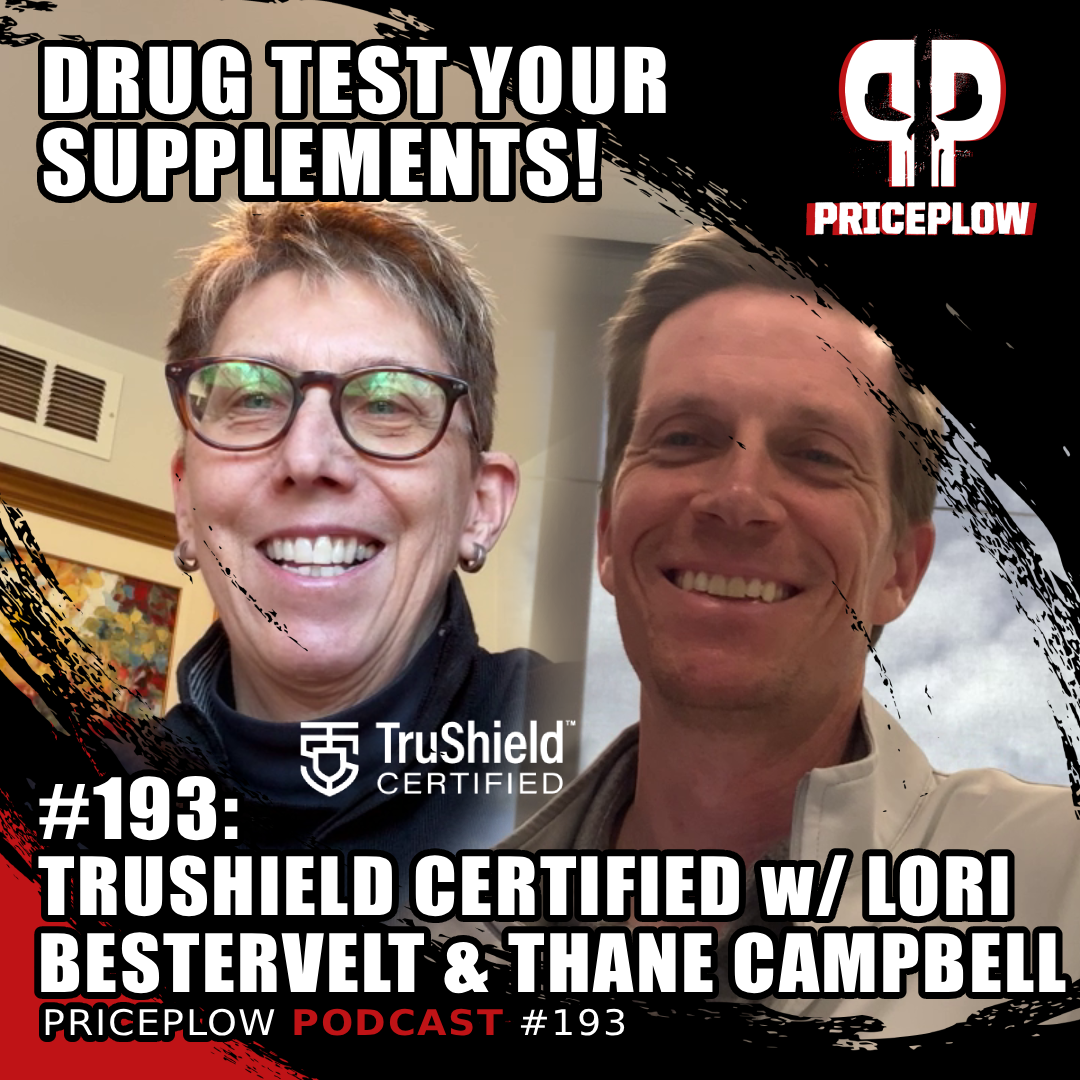
Lori Bestervelt, Ph.D., creator of the NSF 173 standard, and Thane Campbell from SMRTL introduce TruShield™ Certified, testing supplements for over 400 banned substances using WADA-level methodologies on Episode #193 of the PricePlow Podcast.
With Lori's 22 years creating industry standards at NSF International (including the foundational NSF 173 standard) and Thane's expertise from SMRTL (one of only two WADA-experienced anti-doping laboratories in the United States), they're introducing a certification approach that tests for well over 400 prohibited substances, including entire drug classes like glucocorticoids and HIF stabilizers that other programs overlook.
TruShield™ Certified: Finished Product Drug-Testing from an Elite Lab
Unlike traditional bundled certification programs that require brands to repeat testing across multiple areas they may already have covered, TruShield takes a streamlined approach by focusing solely on what athletes and tested individuals need most: certainty that their supplements are free from banned substances.
The conversation explores the evolution of performance-enhancing substances from prohormones to SARMs to peptides, the challenges of cross-contamination in manufacturing, and why the certification industry hasn't kept pace with modern supply chain realities. Whether you're a brand looking to protect athletes or a consumer wanting transparency about what's in your supplements, this episode delivers critical insights into the future of supplement safety.
Subscribe to the PricePlow Podcast on your favorite platform and sign up for TruShield Certified news alerts on PricePlow before we dive into the details!
Subscribe to the PricePlow Podcast on Your Favorite Service (RSS)
https://blog.priceplow.com/podcast/trushield-certified-193
Video: Introducing TruShield™ Certified with Lori Bestervelt and Thane Campbell
Podcast: Play in new window | Download (Duration: 1:14:22 — 66.2MB)
Detailed Show Notes: TruShield™ Certified’s Approach to Banned Substance Testing
-
0:00 - Introductions and Background
Mike welcomes Lori Bestervelt, Ph.D., and Thane Campbell to discuss their new certification service for athletes and sports organizations. Lori introduces herself as the former Chief Science Officer at NSF International, where she spent 22 years creating industry standards and certification programs for sports supplements. A lifelong competitive swimmer and triathlete with a Ph.D. in Toxicology from the University of Michigan, she developed the foundational NSF 173 standard and created some of the first programs that tested supplements for banned substances while working with sports leagues and USADA.
After leaving NSF, Lori joined TruShield™ Certified to create an innovative certification program that leverages her decades of experience combined with SMRTL's anti-doping laboratory expertise.
-
3:00 - The Problem with Bundled Certification Services
Lori explains that existing certification programs in the sports nutrition industry offer bundled services, requiring brands to complete GMPs, label claim testing, and contaminant testing all with one organization. This creates significant redundancy for companies already conducting these tests with other providers. While this approach may have served its purpose 20 years ago, the industry has evolved significantly.
TruShield was created to address this inefficiency by offering a certification program focused exclusively on rigorous and comprehensive banned substance testing. Rather than testing for the industry standard of under 300 prohibited substances, TruShield tests for over 400, including entire drug classes like glucocorticoids and HIF stabilizers that other programs overlook, providing athletes with greater protection and brands with more comprehensive screening.
-
5:00 - Industry Evolution and Current Gaps
Ben notes the importance of Lori's history in this space, particularly regarding adaptation and innovation in detecting banned substances. Lori acknowledges that certification programs must evolve to meet where the industry needs or wants to go, and that became a driving factor in launching TruShield.
The conversation highlights how most certification protocols have remained largely unchanged despite significant shifts in manufacturing practices, substance trends, and supply chain complexity. This stagnation creates gaps that newer, more innovative approaches can address by focusing on what matters most to athletes and tested individuals.
-
7:00 - Thane's Background and SMRTL's Role
TruShield™ Certified brings WADA-level banned substance testing to supplements. Led by Lori Bestervelt (who created NSF 173 & Certified for Sport), it tests for 400+ banned substances using the same lab sports organizations trust when athletes test positive.
Thane introduces himself as an executive with TruShield™ Certified and the Sports Medicine Research and Testing Lab (SMRTL), one of only two WADA-experienced anti-doping laboratories in the United States. Located in Salt Lake City, Utah, SMRTL has spent over two decades conducting urine and blood testing for performance-enhancing substance detection in the Olympic space and professional sports leagues.
The lab also tests dietary supplements and finished products when athletes test positive and claim contamination as the source. These investigations help validate or refute such claims for professional leagues and USADA. Through this work, SMRTL repeatedly heard from leagues and potential customers about the need for more comprehensive certification programs that understand emerging substances and market changes.
-
9:00 - The Evolution of Banned Substances
Thane discusses why innovation is critical in this category, driven by constant innovation in new substances people want to use for performance enhancement. The real acceleration began in the early 2000s with prohormones and stimulants like methylhexanamine (DMAA) found in Jack3d.
When prohormones were made illegal in 2015 through the Designer Anabolic Steroid Control Act (DASCA), the market shifted dramatically to selective androgen receptor modulators (SARMs). These substances proved especially problematic from a manufacturing perspective because they're "sticky" and become persistent contaminants. Testing revealed that products labeled as containing single SARMs supposedly sold as Ostarine often contained a myriad of other SARMs at contamination levels, creating serious risks for tested athletes.
-
11:00 - Consumer Safety and Informed Decisions
Ben emphasizes the importance of having mature conversations about supplement safety without shaming individual choices. While some consumers may intentionally purchase substances like Ostarine, the real concern is cross-contamination where someone buying vitamin D unknowingly gets residual SARMs from previous production runs in the same equipment. This highlights the critical need for comprehensive testing that allows consumers to make informed decisions about what they're actually putting in their bodies. The conversation touches on the accessibility of substances once considered exotic or hard to obtain, with Ben noting how peptides, for example, have become remarkably easy to access in recent years.
-
15:00 - Testing Methodology and Laboratory Capabilities
The discussion shifts to TruShield's testing approach and what sets their methodology apart. Thane explains how SMRTL's WADA accreditation provides a foundation of expertise in detecting sophisticated doping techniques and emerging substances. The laboratory must stay ahead of trends by not only reacting to new substances but predicting where the market is heading. Currently, the industry is shifting toward peptides and other novel compounds, requiring laboratories to continuously update their testing panels and methodologies. TruShield's goal is ensuring that people know with certainty they're not inadvertently consuming substances they don't intend to take.
-
20:30 - The Lot-by-Lot Certification Process
Lori clarifies that TruShield operates on a lot-by-lot certification basis rather than facility-wide or product-wide approvals. Each production lot must be tested and certified individually, which might seem more burdensome but provides the highest level of assurance for athletes and consumers. This approach recognizes the reality of manufacturing where contamination can occur between batches or when equipment is shared for multiple products. While other programs may certify facilities or assume consistent production, TruShield's method ensures every certified lot has actually been tested against their comprehensive panel of nearly 500 banned substances.
-
25:45 - Cross-Contamination Challenges in Manufacturing
The conversation explores the serious issue of cross-contamination in supplement manufacturing facilities. Thane provides the example of how sticky SARMs can persist in equipment even after cleaning, leading to unintentional contamination of subsequent production runs. This creates risk not just for contract manufacturers producing multiple brands but also for brands using shared facilities.
Ben adds perspective about contract manufacturing relationships, noting that many brands don't have visibility into what else is being produced in their manufacturing partner's facility. This lack of transparency increases the importance of finished product testing rather than relying solely on facility certifications or good manufacturing practices.
-
32:15 - Cost Considerations and Accessibility
Mike asks about the cost of TruShield certification and how it compares to existing options. Thane explains their pricing structure starts at a reasonable per-lot fee, which is very competitive given the comprehensive nature of their substance panel with nearly 500 compounds.
The team discusses how companies currently using bundled certification services may find TruShield's focused approach more cost-effective, especially if they're already conducting GMPs and other quality testing through different providers. Lori emphasizes that removing the redundancy of repeated testing across multiple areas can actually reduce overall certification costs while providing athletes with better protection through more comprehensive banned substance screening.
-
35:30 - Early Adopters: CON-CRĒT, RedLeaf Biologics, and Vireo
The conversation highlights some of TruShield's early adopters, starting with CON-CRĒT, the brand known for its patented creatine hydrochloride. Founder Mark Faulkner, who co-founded Aegis Sciences Corporation (one of the industry's early anti-doping labs), chose TruShield because he understands what rigorous testing requires. RedLeaf Biologics became the first ingredient supplier to pursue TruShield certification for their sports nutrition targeted ingredients, specifically starting with ReDaxin™.[1]
Vireo selected TruShield to certify their innovative Amino Activ topical product, demonstrating the program's flexibility beyond traditional supplements. These early adopters share recognition that comprehensive banned substance testing aligned with professional sports standards provides both athlete protection and competitive differentiation in the marketplace.
-
40:45 - International Expansion and Geographic Availability
The conversation turns to TruShield's availability for international brands, particularly those in Europe and the UK. Lori explains they're currently focused on the North American market but are actively working on international expansion plans. She discusses the complexities of different regulatory frameworks across regions, with Europe and the UK having their own certification requirements and preferences. While TruShield aims to eventually serve the global market, they're starting by establishing a strong foundation in North America before expanding to other territories. The team is exploring partnerships that could facilitate international adoption while maintaining their high testing standards.
-
47:15 - League Endorsements and Adoption
Mike asks about professional sports league endorsements and how TruShield is building relationships with major athletic organizations. Thane explains that gaining league endorsements is a critical part of their growth strategy and brand recognition efforts. While they can't disclose specific conversations, they're actively engaging with various professional leagues and athletic organizations to demonstrate the value of their more comprehensive testing approach.
WADA-experienced lab access, elevated product standards, dedicated scientists, early threat detection, and athlete-first approach.
League endorsements provide immense credibility because these organizations understand the stakes involved when athletes test positive and face suspensions or career consequences. Building these relationships takes time, but the team is confident their methodology and pedigree will resonate with decision-makers.
-
53:00 - The Competitive Landscape
The discussion addresses how TruShield fits into the existing certification ecosystem without directly attacking competitors. Lori carefully explains that other programs have their place and served important purposes in developing the industry over the past two decades. However, TruShield believes the industry has evolved to a point where a more focused, comprehensive approach to banned substance testing makes sense. Rather than positioning themselves as replacing existing certifications, they see themselves as offering a complementary option that may better serve certain brands and athletes. The conversation emphasizes that competition and innovation in the certification space ultimately benefits everyone by raising overall standards.
-
58:45 - Manufacturing Partnerships and Supply Chain Transparency
Mike asks about how TruShield works with manufacturing partners and whether brands need to convince their contract manufacturers to participate. Lori clarifies that TruShield certifies the finished product regardless of where it's manufactured, so brands don't need to change manufacturing partners. However, she acknowledges that transparent communication between brands and their manufacturers about certification requirements helps streamline the process. Thane adds that some forward-thinking manufacturers are actually seeking TruShield certification for their entire production facility to provide added value to all their brand partners, though this isn't a requirement for individual brands to pursue certification.
-
1:04:30 - Future Trends and Emerging Substances
WADA-experienced lab access gives the certification restricted reference materials and advanced anti-doping protocols.
The conversation explores what's on the horizon for performance-enhancing substances and how TruShield is preparing for future trends. Thane discusses the current shift toward peptides and growth hormone secretagogues, noting how these substances present unique testing challenges compared to traditional stimulants or prohormones.
The team monitors underground forums, scientific literature, and regulatory developments to stay ahead of emerging substances before they hit mainstream supplement channels. This proactive approach helps protect athletes by having testing methodologies in place before widespread contamination or intentional inclusion occurs. The discussion highlights how TruShield's connection to SMRTL's anti-doping work provides unique insights into what's coming next.
-
1:09:15 - The Caffeine Question and WADA Regulations
An interesting tangent emerges about caffeine and its history with WADA's banned substances list. Ben brings up how caffeine was once banned but is now permitted, and the group discusses the rationale behind these decisions. Thane explains that caffeine was removed from the banned list in 2004 because the urinary threshold proved ineffective at distinguishing between normal social use and abuse, and high doses could actually be detrimental to performance. This leads to a broader philosophical discussion about where to draw lines between health enhancement and performance enhancement, especially for ubiquitous substances like caffeine that provide documented health benefits. They note the value of having these open conversations about the nuances of performance enhancement and substance regulation.
-
1:13:45 - Partnership with Eurofins and Closing Thoughts
Thane mentions TruShield's collaboration with Eurofins to launch the Clean Sport Certified product certification program. For companies interested in a more comprehensive certification that includes GMPs and label verification alongside banned substance testing, this partnership provides that option. TruShield stays in their lane of what they do best while partnering with Eurofins to offer expanded services when needed. This collaboration was launched leading into SupplySide Global, where many companies discussed the program with both organizations. The team emphasizes that getting the TruShield name recognized in the market is critical, as even the best certification is only valuable if athletes, leagues, and consumers know to look for it. They're attending industry conferences, seeking league endorsements, and building brand awareness to ensure TruShield becomes a trusted mark of safety.
Where to Follow Lori Bestervelt, Thane Campbell, and TruShield™ Certified
- TruShield Certified Website (view all certified products and lots)
- Lori Bestervelt on LinkedIn
- Thane Campbell on LinkedIn
- TruShield Certified on LinkedIn
- TruShield Certified on Instagram
- Subscribe to TruShield Certified news alerts on PricePlow
Thanks to Lori and Thane for joining us to explain how TruShield Certified is bringing innovation to banned substance testing! Subscribe to the PricePlow Podcast on any platform, sign up for TruShield Certified alerts on PricePlow, and leave us a great review on Apple Podcasts and Spotify!



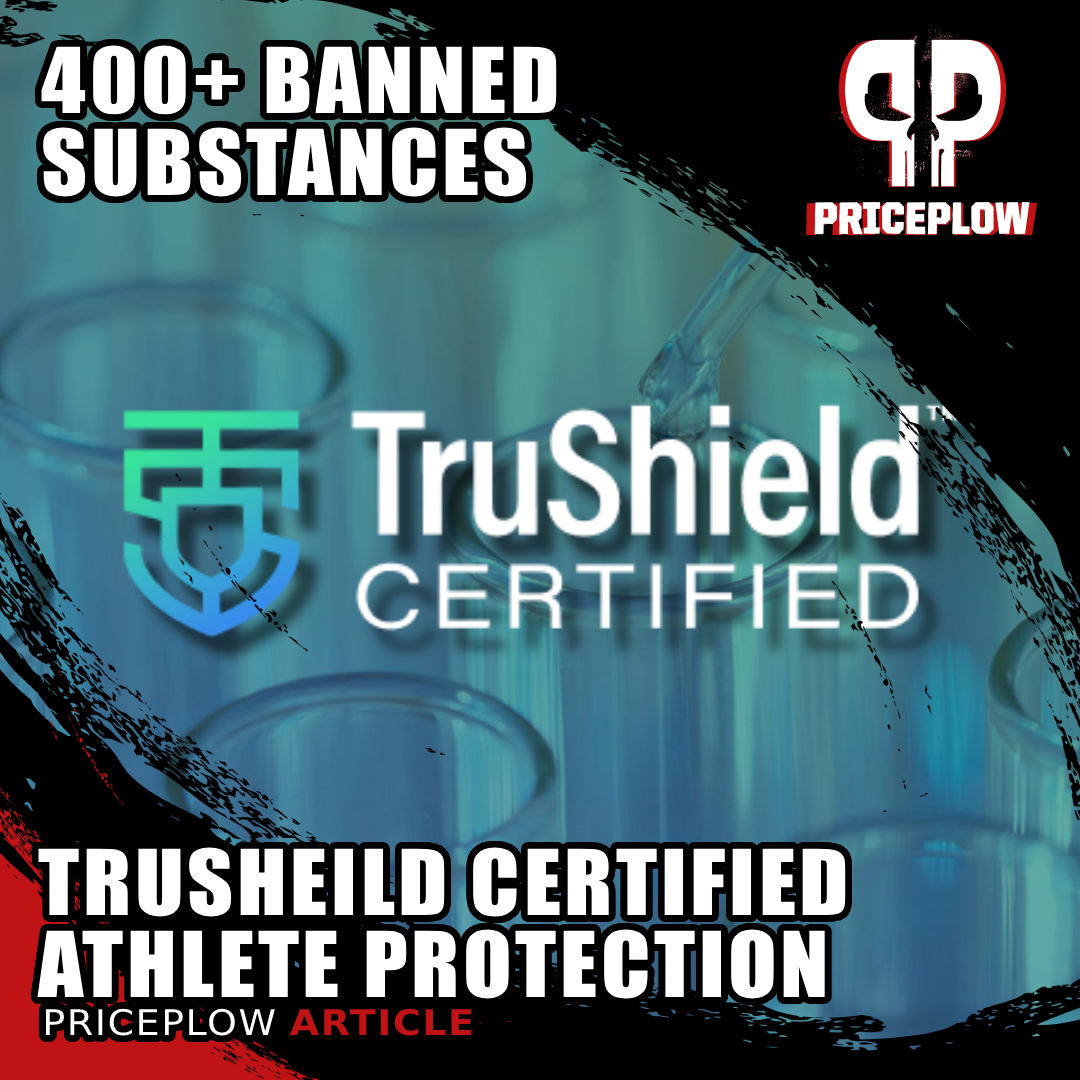
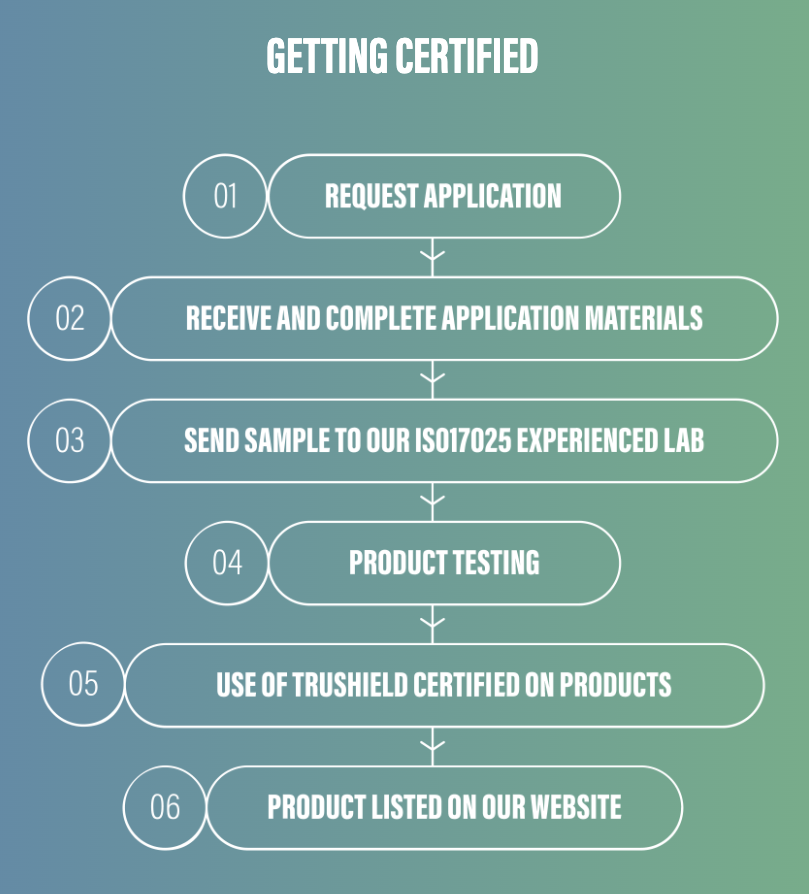

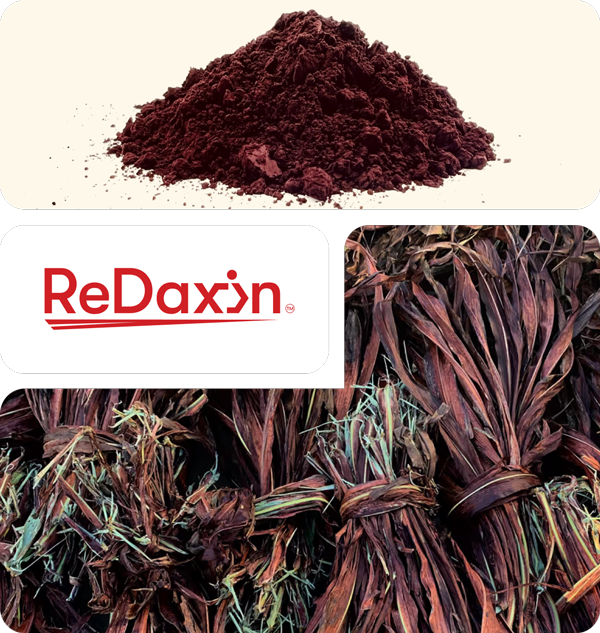
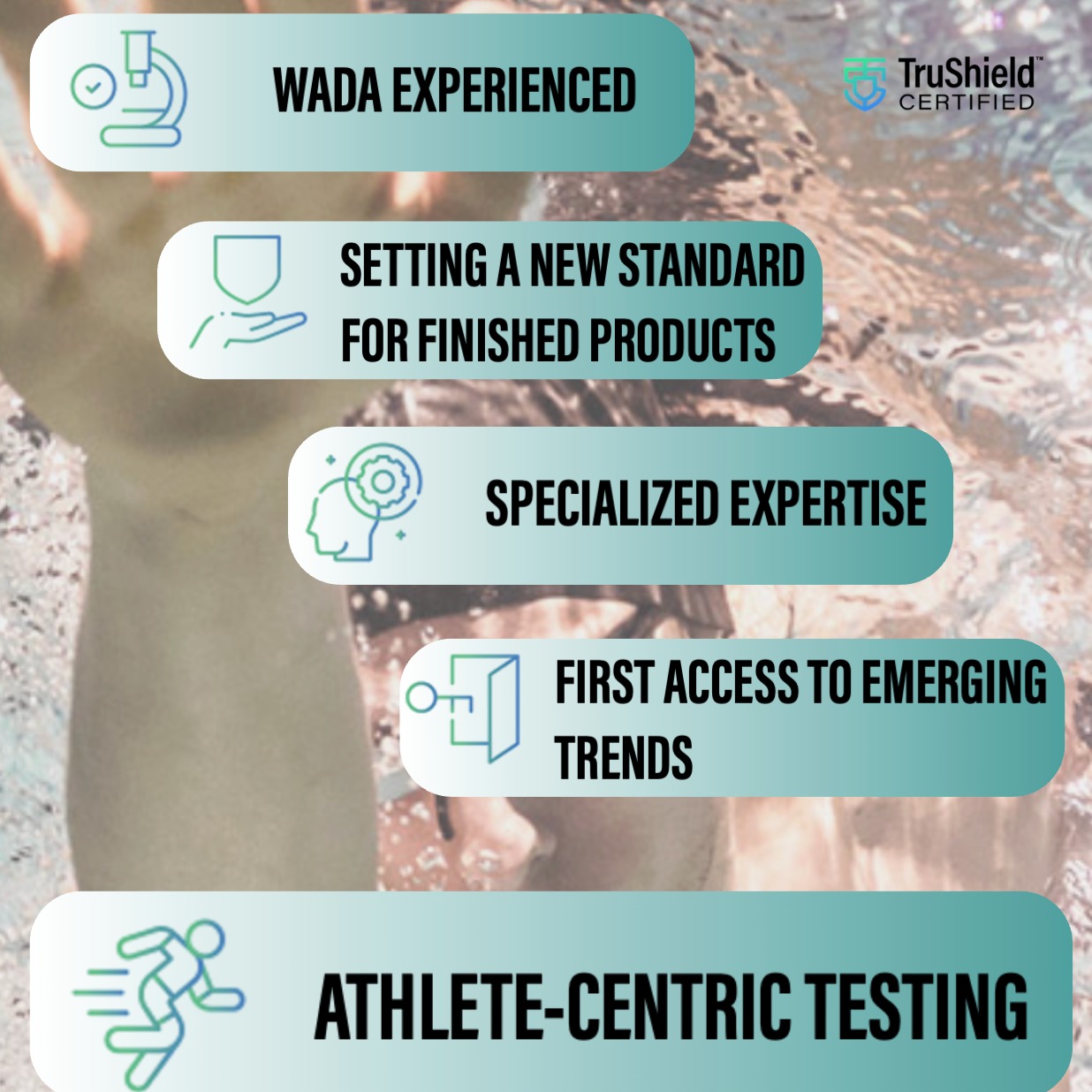
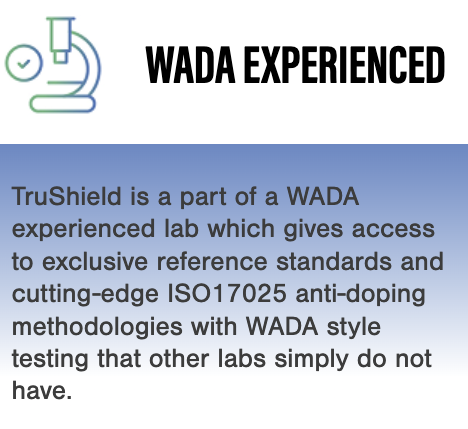
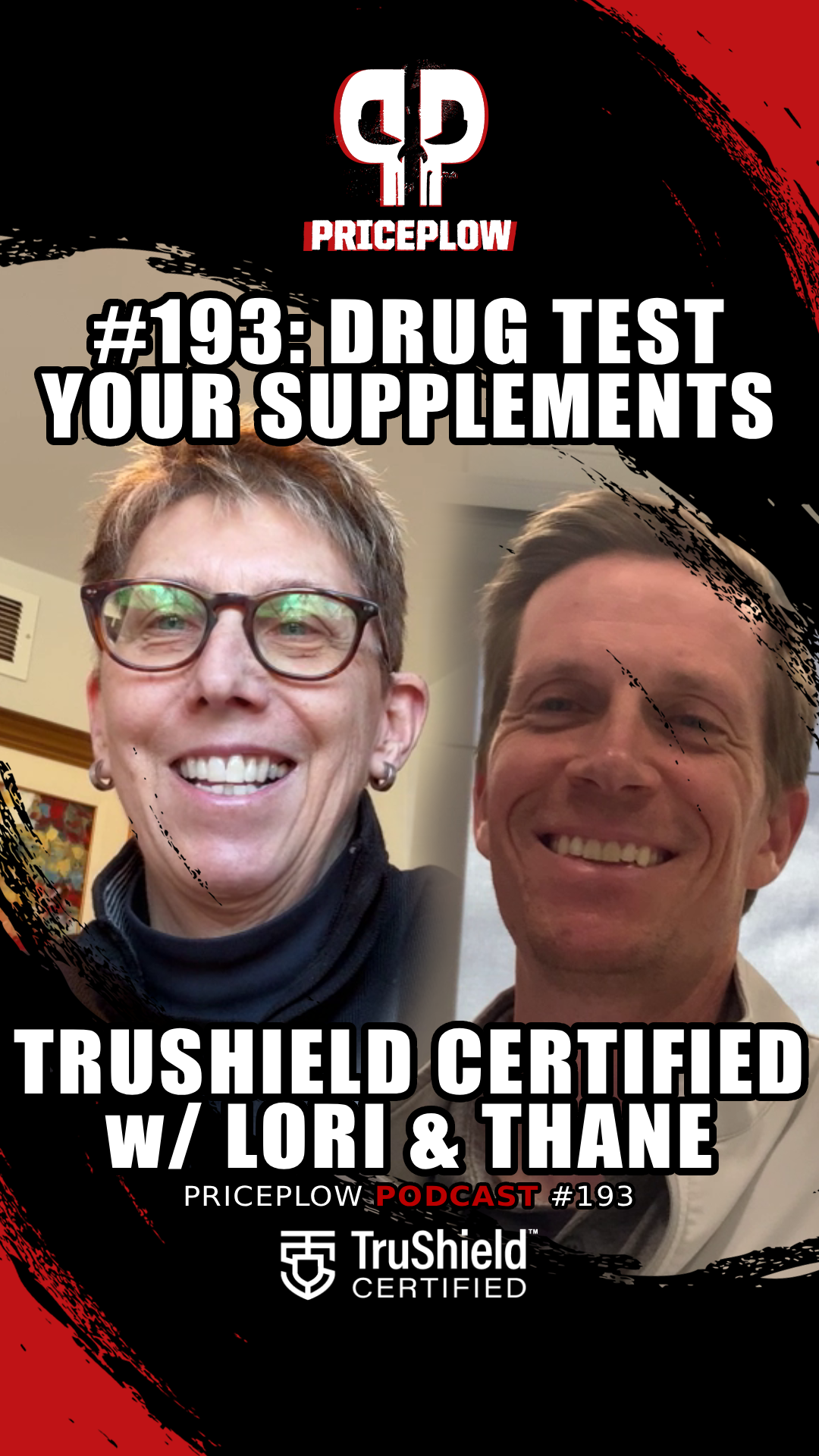


Comments and Discussion (Powered by the PricePlow Forum)